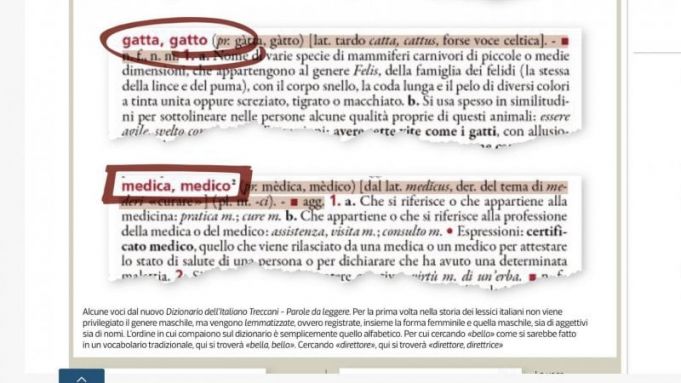
A direct transfer of words was never going to work for such a complex show. So the team involved got creative.
How does one translate “Hamilton” into another language? That was the challenge facing Sera Finale, a rapper-turned-songwriter, and Kevin Schroeder, a seasoned musical theater translator, when they were asked to collaborate on a German version of the show — the first in a language other than English.
The project turned out to be just as complicated as they had feared: complex rhyme schemes, elaborate wordplay and so many songs. There were drafts and demos and revisions; a member of the “Hamilton” music team, Kurt Crowley, learned German to help coordinate the process, and ultimately Lin-Manuel Miranda, the show’s creator, had to approve or reject each line.
Here are six lyrics that demonstrate some of the challenges the team faced as they sought to preserve the meaning and melody of the original, but in a language with different sounds and syntax. The first line is the original English lyric; the second is the German lyric; and the third is the so-called back translation, which is what the German words literally mean in English.
Avoiding Hyperbole
Burr: How does a bastard, orphan, son of a whore and a/Scotsman, dropped in the middle of a forgotten/Spot in the Caribbean by providence, impoverished, in squalor/Grow up to be a hero and a scholar?
“Alexander Hamilton” (English)
Gino EmnesBurr: Wie wird ein Bastard/der vom Schoß einer trostlosen Dirne kroch/Aus ’nem gottverdammten, verlor’nem Loch in der Karibik/Ohne Titel, ohne Mittel, ohne Werte/Am Ende doch ein Held und ein Gelehrter?
(How does a bastard/Who crawled out of the lap of a bleak harlot/From a goddamned, lost hole in the Caribbean/With no title, no means, no merits/In the end still become a hero and a scholar?)
“Alexander Hamilton” (German)
Benet MonteiroThese are the first words from “Alexander Hamilton,” the musical’s opening song, which introduce the title character with a description of his humble upbringing. The challenge here was to maintain the original lyric’s directness without overstating the case or demeaning the West Indies. The original proposed German lyric referred to Hamilton as a “Bastardblag,” an arcane word meaning bastard brat, to his mother as a “Hure,” meaning whore, and to the islands of Hamilton’s upbringing as “verdreckten,” meaning filthy. Miranda thought those words went too far, and asked for them to be dialed back. “The first draft was almost Trumpian,” he said, alluding to a coarse phrase the former president used to refer to Haiti, El Salvador and some African nations. “To me that’s not the intent of the lyric. I never wanted to comment on Nevis, or St. Croix. It was just this really small part of the world. That’s an example of something that could easily get lost in translation if you’re not on it.”
✣ ✣ ✣
Quoting Rap Songs
Burr: Ah, so you’ve discussed me/I’m a trust fund, baby, you can trust me.
“The Schuyler Sisters” (English)
Chasity Crisp and Gino EmnesBurr: Schiess mich über’n Haufen, doch/Du bist’n Babe, ich möcht’ dein Badewasser saufen.
(Shoot me down but/You are a babe, I’d like to drink your bath water.)
“The Schuyler Sisters” (German)
Chasity Crisp and Gino EmnesThe original “Hamilton” score includes a number of quotations from American hip-hop songs. Most of them were cut from the German version because the translations made them unrecognizable. But, in an effort to accomplish the same effect, the translators inserted several quotations from German hip-hop songs into the German score. In a section of the song “The Schuyler Sisters,” when Aaron Burr flirts with Angelica Schuyler, the translators found a place to insert a phrase meaning “You are a babe, I’d like to drink your bath water,” from a 1995 German song “Ja klar,” which was a hit for Sabrina Setlur, who rapped as Schwester S. Miranda, who listened to each German song quoted before approving the citations, said he views “Hamilton” as a love letter to hip-hop, as well as to musical theater, and that he considers the hip-hop quotations as a point of entry for some audience members. “A hip-hop fan who comes in, maybe, with their arms crossed, hears those references and goes ‘OK, the person who wrote this obviously loves this culture and loves the music’,” he said. “And so we wanted to continue to reflect that.”
✣ ✣ ✣
New Imagery
Angelica: So this is what it feels like to match wits/With someone at your level! What the hell is the catch?/It’s the feeling of freedom, of seeing the light/It’s Ben Franklin with a key and a kite/You see it right?
“Satisfied” (English)
Chasity CrispAngelica: So kribbeln Schmetterlinge, wenn sie starten/Wir beide voll auf einem Level, offene Karten!/Das Herz in den Wolken, ich flieg’ aus der Bahn/Die Füße kommen an den Boden nich’ ran/Mein lieber Schwan!
(So that’s how butterflies tingle when they take off/We’re on the same level, all cards on the table!/My heart in the clouds, I’m thrown off track/My feet don’t touch the floor/My dear swan!)
“Satisfied” (German)
Chasity CrispThe original language is packed with American metaphors and idioms that just don’t translate. So the translators were given license to come up with their own turns of phrase. This example is from the song “Satisfied,” in which Angelica Schuyler, preparing to toast Hamilton’s marriage to her sister, recalls the first time she met him. The images are completely different (and the references to Ben Franklin are gone) but the meaning remains. “That section sounds fantastic, and gives the same feeling of falling in love for the first time,” Miranda said. “The metaphor may be different, but it keeps its propulsiveness.”
✣ ✣ ✣
Prioritizing Meaning
Eliza: You forfeit all rights to my heart/You forfeit the place in our bed/You sleep in your office instead/With only the memories/Of when you were mine/I hope that you burn
“Burn” (English)
Ivy QuainooEliza: Du nahmst dir das recht auf mein Herz/Den Platz hier in unserem Bett/Ich lösch unser leben komplett/Dir bleibt nur die Asche/Du warst einmal mein/Ich hoffe du brennst
(You took the right to my heart from yourself/The place here in our bed/I am erasing our life completely/All that’s left for you is the ashes/You used to be mine once/I hope that you burn)
“Burn” (German)
Ivy QuainooThere were many moments when Miranda et al. allowed the German translators to bend the original meaning in order to preserve lyricism and melody. But there were other moments when they insisted on literalism, and the end of the song “Burn,” in which Eliza Hamilton expresses her outrage at her husband’s infidelity, was one of those. The translators initially sought to have Eliza repeat “brenn’n,” a shortened form of the word for “burn,” throughout the song. But that meant changing the final line of the song from words meaning “I hope that you burn” to words meaning “All this shall burn.” Miranda rejected that idea, insisting that Eliza direct her anger squarely at her husband. So now the song ends with “brennst,” which is not a perfect echo of the word used earlier in the song, but which preserves the original meaning: “You burn.” “I really just wanted to make sure the last line was personal: ‘It’s not about the world — it’s about you. This is what you did, and these are your consequences’,” Miranda said.
✣ ✣ ✣
Protecting Choreography
Hamilton: Teach me how to say goodbye/Rise up, rise up, rise up/Eliza
“The World Was Wide Enough” (English)
Benet MonteiroHamilton: Weitergeh’n und Abschied nehm’n/Frei sein, frei sein, frei sein/Eliza
(Move on and say goodbye/Be free, be free, be free/Eliza)
“The World Was Wide Enough” (German)
Benet MonteiroIn the show’s penultimate song, “The World Was Wide Enough,” Hamilton dies. As that moment nears, he repeats the phrase “Rise up,” perhaps alluding to ambition, or revolution, or perseverance, and pictures his wife. The German translators at first proposed a lyric that preserved the internal rhyme of the lyric, but altered its meaning, using the word “leise,” which means quietly, and which beautifully echoes the name “Eliza,” to replace “Rise up.” But choreographer Andy Blankenbuehler objected, because the movement at that moment has the ensemble becoming more active — more “rise up” than “quietly” — and he felt it was important to preserve the relationship between the words and the movement. The translators went back to the drawing board, and came up with something less poetic but more protective of the dance concerns. “The complicating factor is that Andy choreographs to lyric, so when the lyrics underneath the movement have changed, what adjustments have to happen?” Miranda said. “I’m trying to keep those connected.”
✣ ✣ ✣
A Pointed Addition
Hamilton: America, you great unfinished symphony, you sent for me
“The World Was Wide Enough” (English)
Benet MonteiroHamilton: America, durch deine Brust pumpt Sklavenblut, Moral und Wut.
(America, through your breast is pounding the blood of slaves, morality and rage.)
“The World Was Wide Enough” (German)
Benet MonteiroThe German translators saw an opportunity to interpolate a reference to America’s troubled history with slavery. “Our version is kind of a German perspective on America,” said Kevin Schroeder, one of the translators. “He’s saying ‘unfinished symphony,’ and that also implies there are some flaws.”
Audio production by Arjen Mensinga and Josephine Sedgwick.




